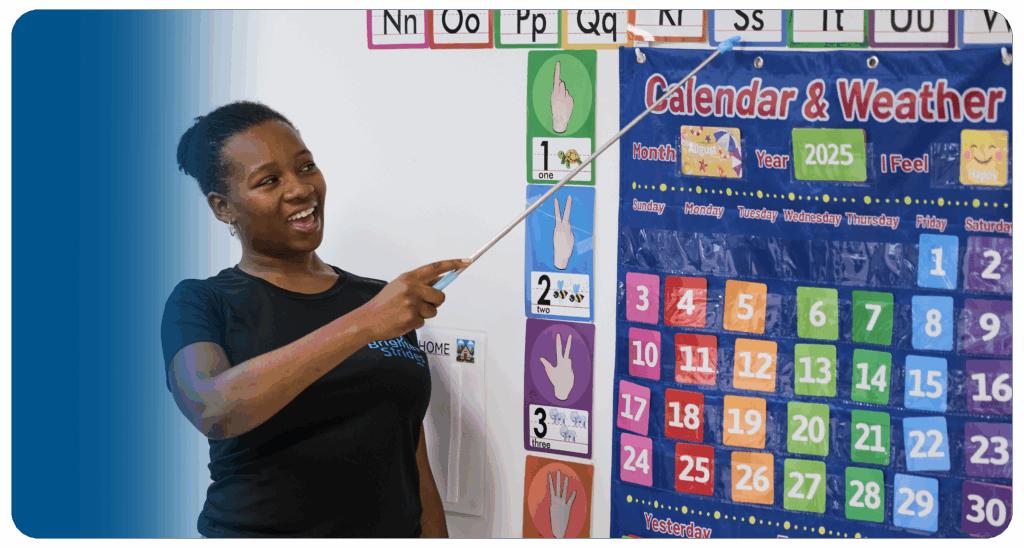Understanding Autism Spectrum
Autism, or Autism Spectrum Disorder (ASD), is a complex neurodevelopmental condition that affects communication, social interaction, and behaviors. To provide a comprehensive answer to the question, “do autistic people know they’re autistic?”, it’s crucial to first understand the signs of autism and the misconceptions surrounding this disorder.

Signs of Autism
The signs of autism can vary widely from person to person, and they often involve difficulties with social communication and interaction. Some individuals may have repetitive behaviors, engage in unusual activities, or show intense interest in specific topics. Additionally, autistic women may exhibit signs of autism that make it harder for them to realize they are autistic [1].
Early identification of these signs is critical, as it is associated with dramatically better outcomes for people with autism. The Centers for Disease Control and Prevention recommends that all children be screened for autism three times by the age of three. However, it’s important to note that there are no medical tests, such as blood work or brain scans, for diagnosing autism. An accurate medical diagnosis must be based on observation of the individual’s communication, social interaction, and behaviors.
Misconceptions about Autism
Despite increased awareness, several misconceptions about autism persist. For instance, a study published in NCBI found that while most participants had a certain level of understanding of autism, there were some misunderstandings. Younger medical workers demonstrated more knowledge about autism than older ones, and the ability of educators and community residents to identify autistic symptoms was positively related to their level of education and experience with autistic children.
Television and the internet were the main sources of information about autism for participants, which underscores the importance of accurate, comprehensive, and accessible information on these platforms. Misunderstandings about autism can contribute to stigma, discrimination, and exclusion. Therefore, it’s crucial to dispel these misconceptions and foster a more accurate and empathetic understanding of autism.
In conclusion, understanding the signs of autism and debunking the misconceptions surrounding it are essential steps towards addressing the question, “do autistic people know they’re autistic?”. By increasing awareness and understanding of autism, society can better support autistic individuals in their self-understanding and self-advocacy efforts.
Diagnosing Autism
The process of diagnosing Autism Spectrum Disorder (ASD) involves several steps, from early identification to understanding co-occurring conditions. Early detection is crucial for managing ASD and providing the necessary support for those living with the condition.
Early Diagnosis Importance
An accurate and early diagnosis of Autism can provide the basis for appropriate educational and home-based support. Early identification is associated with dramatically better outcomes for people with Autism, and the Centers for Disease Control and Prevention recommends that all children be screened for Autism by their family pediatrician three times by the age of three. ASD can be reliably diagnosed by age 2, and it is important to seek an evaluation as soon as possible.
Diagnostic Procedures
The procedures for diagnosing Autism are not as straightforward as some other medical conditions. There are no medical tests, such as blood work or brain scans, for diagnosing Autism. An accurate medical diagnosis must be based on observation of the individual’s communication, social interaction, and activities and interests.
Several Autism-specific tools are now being used for formal diagnosis, including the Autism Diagnostic Observation Schedule, the Autism Diagnostic Interview, and the Screening Tool for Autism in Toddlers. These tests should be used as part of a larger assessment, and not just on their own.
For an official diagnosis of autism spectrum disorder (ASD), a child must meet the standards set by the Diagnostic and Statistical Manual of Mental Disorders (DSM-5) published by the American Psychiatric Association, which requires having problems in two categories to fall on the autism spectrum.
Genetic testing may be recommended by doctors to rule out any other conditions that could cause symptoms similar to those of ASD in children.
Co-occurring Conditions
Autism can co-occur with other conditions, such as chronic constipation and/or diarrhea, immune & GI systems disruptions, low muscle tone, pain sensitivity, pica, seizures, sensory problems, sleep problems, and hearing & visual impairment. Understanding these co-occurring conditions is crucial to providing comprehensive support and care for those with Autism.
In essence, diagnosing Autism is a thorough process that involves various steps and considerations. The aim is to provide an accurate diagnosis that will guide future interventions and support, helping those with Autism lead fulfilling lives.
Autism Spectrum Disorder (ASD)
Autism Spectrum Disorder (ASD) is a complex neurological and developmental condition that manifests in a variety of ways, impacting how individuals interact, communicate, learn, and behave. The question at the heart of this article, ‘do autistic people know they’re autistic?’, is explored in the context of these symptoms and behaviors, and the lifelong management of ASD.
Symptoms and Behaviors
ASD typically presents in the first two years of life, with the majority of children with ASD displaying symptoms within this period. However, in some cases, children may appear to develop typically before experiencing a regression between 18 and 24 months of age Mayo Clinic.
People with ASD often exhibit difficulties with social communication and interaction. They may struggle with understanding and responding to social cues, have limited eye contact, and may exhibit repetitive behaviors. Additional symptoms can include sleep problems and irritability NIMH.
The severity of ASD varies significantly among individuals. Some may have difficulty learning and show signs of lower intelligence, while others may have normal to high intelligence but face challenges with communication and social skills Mayo Clinic.
Lifelong Management
While ASD is a lifelong disorder, it’s important to note that treatments and services can significantly improve a person’s symptoms and overall daily functioning. Early intervention and treatment are particularly critical as they can reduce difficulties and help individuals leverage their strengths and acquire new skills NIMH.
Strategies for managing ASD vary based on the individual’s unique symptoms and needs. These can include behavioral therapy, communication therapy, social skills training, educational support, and in some cases, medication.
The goal of lifelong management is not to ‘cure’ ASD, but to help the individual live a fulfilling and productive life with as much independence as possible. It also involves helping the person understand their condition, which is a critical aspect of self-awareness and acceptance.
In conclusion, while ASD presents numerous challenges, with the right support, individuals with ASD can lead meaningful lives and make significant contributions to society.
Screening and Evaluation
Screening and evaluation are critical steps in diagnosing Autism Spectrum Disorder (ASD). During these steps, healthcare providers observe behaviors, listen to concerns, and use specialized tools to identify characteristics of ASD. The process may vary depending on the age of the individual being evaluated.
Age-based Evaluation
For very young children, diagnosis often involves a two-stage process. During general developmental screenings at well-child checkups, doctors keep an eye out for early signs of ASD. If these signs are present, they may recommend an additional diagnostic evaluation. ASD can be reliably diagnosed by age 2, and it is crucial to seek evaluation as soon as any signs become apparent.
In some cases, doctors may also recommend genetic testing to rule out other conditions that could cause symptoms similar to those of ASD.
For older children and adolescents, the evaluation process may involve the school’s special education team, who can observe behaviors in a learning environment. They may then refer the child to a primary healthcare provider or a specialist in ASD for further diagnosis.
Adult Diagnosis Challenges
Diagnosing ASD in adults can be more challenging. Symptoms can often overlap with other mental health disorders, making it difficult to pinpoint ASD without a comprehensive evaluation. Adults suspected of having ASD are usually referred to a neuropsychologist, psychologist, or psychiatrist with experience in diagnosing ASD [5].
The question, “do autistic people know they’re autistic?” can be complex. Many individuals with ASD do develop self-awareness of their diagnosis, especially if they are diagnosed at a young age and receive appropriate support and education. However, due to the challenges in diagnosing adults, some may live much of their lives without a formal diagnosis, even though they exhibit behaviors consistent with ASD.
In any case, the goal of any diagnosis is to provide individuals and their families with the tools and resources they need to understand and manage ASD. Early diagnosis and intervention can often lead to improved outcomes, but even late diagnosis can provide valuable insights and open doors to helpful resources and support.
Autism and Development
Understanding the development of autism involves recognizing early symptoms and considering the severity and intelligence levels associated with the disorder.
Early Symptoms
Most children with autism spectrum disorder show symptoms within the first year of life. However, some children appear to develop typically and then experience regression between 18 and 24 months of age. The signs of autism spectrum disorder often manifest early in development with delays in language skills and social interactions, typically before the age of 2 years [5]. If parents or caregivers suspect that a child may have autism spectrum disorder, it is recommended to discuss their concerns with a doctor for further evaluation and guidance.
According to the NIMH, autism spectrum disorder (ASD) is a neurological and developmental disorder that generally becomes evident in the first 2 years of life. It affects how individuals interact with others, communicate, learn, and behave.
Severity and Intelligence Levels
The severity of autism spectrum disorder varies, ranging from low functioning to high functioning. Some individuals with ASD may have difficulty learning or may demonstrate signs of lower intelligence, while others may have normal to high intelligence but struggle with communication and social skills.
| Severity Level | Description |
|---|---|
| Low Functioning | Individuals may have difficulty learning and may show signs of lower intelligence. |
| High Functioning | Individuals may have normal to high intelligence but struggle with communication and social skills. |
The understanding of autism, including whether autistic individuals know they’re autistic, varies across different groups. A study by NCBI found that younger medical workers had more knowledge about autism than older ones, and the ability of educators and community residents to identify autistic symptoms was positively related to their level of education and experience with autistic children.
Through increased awareness and understanding of the early symptoms and varying degrees of severity in autism spectrum disorder, the journey to diagnosis and management of ASD can be better navigated.
Personal Insights and Awareness
Understanding oneself is a complex process, and it can be especially challenging for individuals with Autism Spectrum Disorder (ASD). The question “do autistic people know they’re autistic?” is not straightforward. The self-understanding in ASD individuals and the personality traits they embody can vary greatly.
Self-Understanding in ASD
Many adults on the autism spectrum have found that providing their child with information about their diagnosis aids them in understanding themselves and motivating them to overcome challenges. It is important for children diagnosed with autism to understand, accept, and appreciate their uniqueness. This is often achieved by being informed about their diagnosis.
Some adults with an autism spectrum diagnosis, who were not told about their diagnosis until they were adults, have experienced poor interactions with others, resulting in ridicule and isolation [6].
Interacting with others who have the same diagnosis can sometimes help individuals with ASD better understand themselves and the world around them. However, explaining an autism spectrum diagnosis to an individual is not a one-time process. It’s ongoing and it may take weeks or months before the individual initiates comments or asks questions about the new information they’re processing.
Personality Traits in ASD
A study has found that individuals with ASD have less self-insight into their personalities compared to typically developing individuals. This is observed through self-informant discrepancy and self-enhancement bias.
Furthermore, personality traits, particularly Neuroticism, are associated with general maladjustment in the ASD group, but not in the typically developing group. This suggests that personality traits could play a role in the unique challenges faced by individuals with ASD.
These insights into self-understanding and personality traits in ASD individuals underscore the importance of personal awareness and understanding. It’s crucial for ASD individuals, and those around them, to appreciate their unique perspectives and the ways in which they experience the world. This understanding can lead to more effective strategies for managing ASD and enhancing the quality of life for these individuals.
References
[1]: https://www.nhs.uk/conditions/autism/signs/adults/
[2]: https://autismsociety.org/screening-diagnosis/
[3]: https://www.nimh.nih.gov/health/topics/autism-spectrum-disorders-asd
[4]: https://www.webmd.com/brain/autism/how-do-doctors-diagnose-autism/
[5]: https://www.mayoclinic.org/diseases-conditions/autism-spectrum-disorder/symptoms-causes/syc-20352928
[6]: https://www.iidc.indiana.edu/irca/learn-about-autism/getting-started-introducing-your-child-to-his-or-her-diagnosis-of-autism.html





